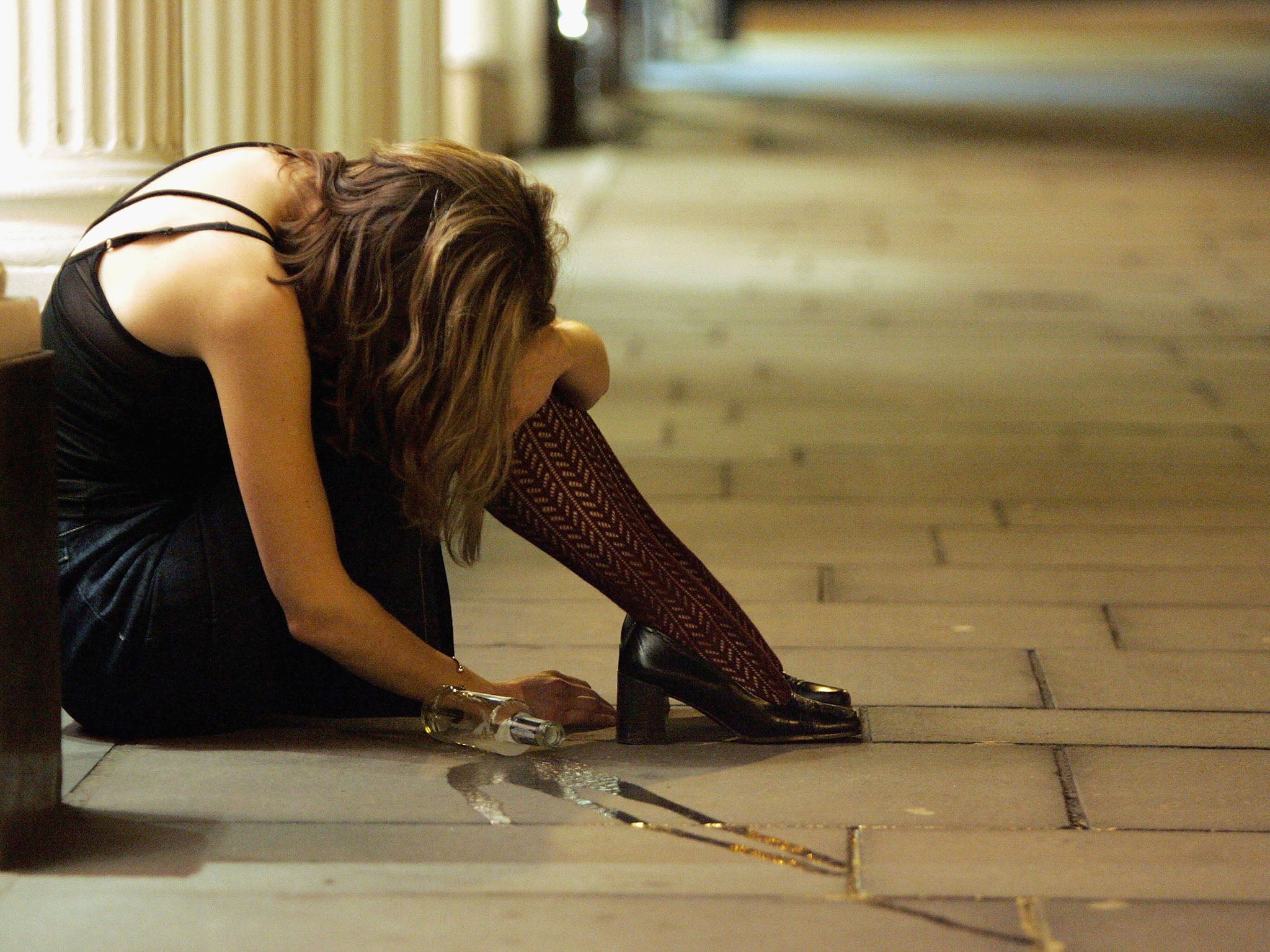Stop blaming drunk rape victims and start teaching people about consent
Society needs to change its attitude towards vulnerable women

A recent report into sexual offence legislation wants the law to change, so that a person who is severely intoxicated loses the capacity to consent to sex.
Like me, you may have already thought that this was the case. But the proposed amendment focuses on providing a definition for whether an alleged victim is “incapable” to give meaningful consent or not: a decision which currently rests with the jury.
Anything that helps convict rapists should, in my opinion, be welcomed. Currently in the UK, it is estimated that 85,000 women are raped every year, but the conviction rate of reported rape stays stagnant at 6.5 per cent. And, as it is estimated that only 15 per cent of rapes are ever reported to the police, this means that a lot of sexual attackers will simply never be caught. This low conviction rate and a society-wide failure to believe vulnerable women has led to rape being "effectively decriminalised".
It’s one thing to change the law. Now we need to translate that change into new public attitude towards rape and victims, in order to encourage those affected to come forward, report what happened to them and know that they will be believed.
Earlier this year, the Office of National Statistics (ONS) published results from a survey which showed that over a quarter of the public believe that drunk victims of rape or sexual assault are at least partially responsible for what has happened to them.
It’s a belief that sends women a clear message: if we are raped when we are drunk, we will be blamed for the violence committed against us and get no justice. The same survey showed that more than a third of those asked believed that victims of sex attacks bore partial responsibility if they had been “flirting heavily” beforehand.
What’s more, blaming women for being raped puts unacceptable restrictions on women’s freedoms that just don’t apply to men. If you’re a man, you can drink, flirt and walk home alone at night without being blamed or placed under excessive scrutiny if they become the victim of crime. They will be believed.
But somehow, in a rape culture where victim blaming is rife, women are not entitled to the same freedoms. We are taught that if we drink, flirt or walk home alone at night, then we are to blame for any violence committed against us.
Shockingly, the ONS survey showed that 34 per cent of 16-19 year olds said a victim’s drunkenness made them partially or totally responsible for rape, with 24.5 per cent of 20-24 year olds agreeing. Tackling a victim-blaming culture is one thing, but much more needs to be done to prevent rape from happening in the first place.
We need to put an end to these victim-blaming attitudes if we want more women to feel that they are able to report rape, and that they have a chance of getting justice if they do. As well as including lessons on consent as part of our Sex Education curriculum, we should be encouraging anti-rape campaigns that – instead of telling women that drinking alcohol makes them “vulnerable” to rape – focus on the perpetrators of violence against women. Last year, Bristol launched a campaign, telling a male audience that drinking, flirting or even being in a relationship are not “an excuse to rape me”.
If we can teach our young people what mutual consent looks like, if we can run campaigns that bust victim-blaming myths in front of potential jurors, if we can change the law so that there is no longer a debate about whether a person is too drunk to consent – if we can do all of these things then we can start to end the terrible injustice that means that rape of vulnerable women has been effectively decriminalised in the UK. When we do all of these things we can and will end male violence against women and girls.
Join our commenting forum
Join thought-provoking conversations, follow other Independent readers and see their replies
Comments
Bookmark popover
Removed from bookmarks